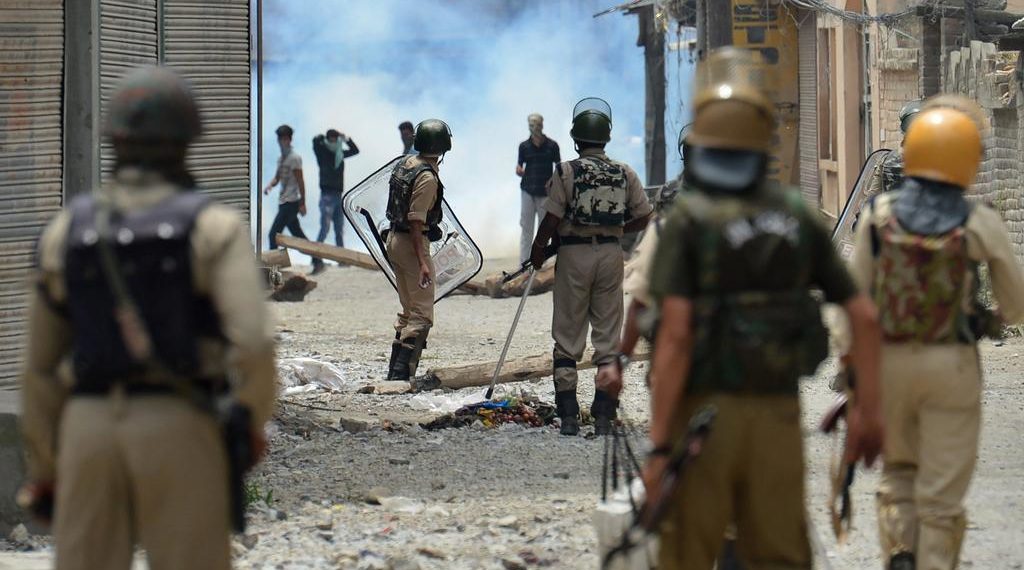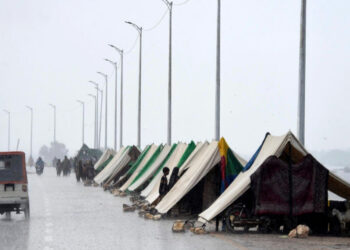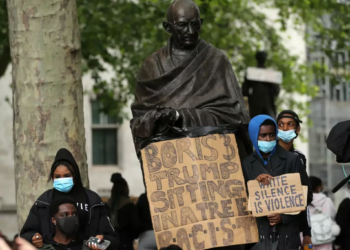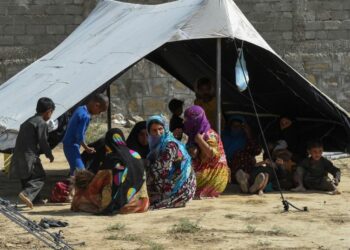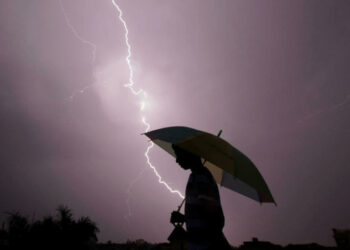If there was a valid case for nationalism getting a bad rap, it is in Kashmir. The clashing nationalisms of India, Pakistan, and the separatists demanding independence hold the territory’s people hostage in their tight grip. It’s responsible for the heartbreaking blood and gore that Kashmiris endure daily.
Albert Einstein and the Indian poet Rabindranath Tagore saw nationalism as an infantile disease and a great menace. This fits India and Pakistan. Nationalism has bound diverse peoples within state boundaries, but it has also made inferior outsiders and evil enemies of each other. India and Pakistan have negated their shared history and culture in exchange for mutual animosity.
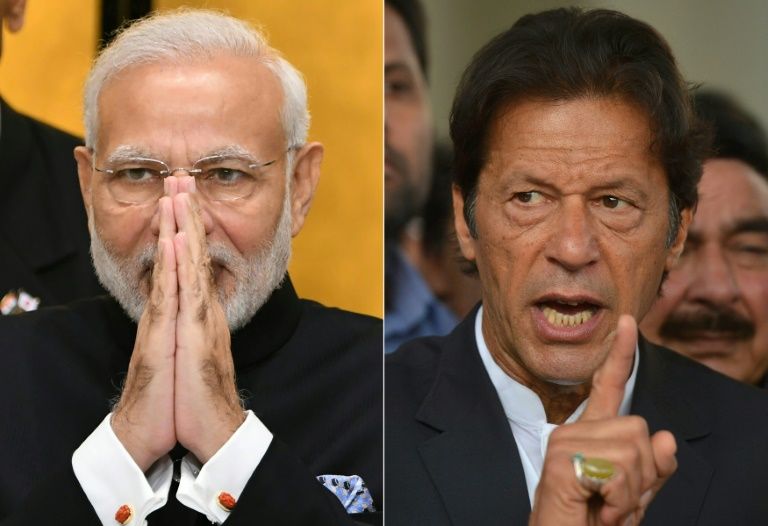
The positive view of nationalism as binding people in solidarity, fate, and common political aspirations is yet to be demonstrated in South Asia. A contest over territory and a history of violence had made matters worse. This has far-reaching consequences in Kashmir, involving two powerful armies armed with nuclear weapons in a deadly face-off. The small band of Kashmiri nationalists willing to embrace martyrdom for independence adds more fuel to the fire.
Competing Nationalisms
As a result of clashing nationalisms, India is at war its people. Pakistan wastes blood and treasure dreaming of annexing Kashmir. The separatists ruin the futures of generations of youth in a hopeless cause.
The other sad truth is that those controlling the strings in the conflict have little incentive to abandon confrontation. It would mean giving up the vast privileges gained from controlling political power, military budgets, and instruments of terror and violence.
But if we remove the ugly side of nationalism from the equation, Kashmir isn’t the seemingly intractable dispute that it is made out to be. Some sober realities about the conflict are worth considering.
Kashmir Conflict
First, India, with its enormous army and sufficient resources, can hold on to its part of Kashmir indefinitely. But it is paying an exorbitant price for its newly found muscular Hindu-only nationalism: the lengthy detention of Kashmiri leaders, restraints on political activity, torture and enforced disappearances, and attempts to change demographics. Overall, the stream-rolling over the rights of the people of Kashmir undermines Indian democracy itself.
Second, Pakistan’s strategy to bleed India in Kashmir, supposedly at low cost, has backfired. Using Kashmir as a pillar of Muslim nationalism and sustaining the decades-old jihad to drive India out of Kashmir has consigned the country to economic ruin.
Pakistani generals who control Kashmir policy, as other important national decision-making, can’t remain immune from the post-COVID-19 economic free-fall and its social consequences. Pakistan’s Kashmir policy needs a major rethink devoid of nationalist hysteria.
Lastly, the dominant discourse among separatists in parts of Kashmir and Pakistan that Kashmir’s freedom struggle and the UN-recognized right of self-determination can force India to resolve the dispute doesn’t mirror ground realities. This would require a decisive shift in international opinion against India, which not on the cards in the foreseeable future.
Several credible polls in Indian- and Pakistani-administered Kashmir reflect polarized opinions. As expected, the support for independence is very high in the primary Muslim areas at the center of the insurgency. But it is very low in predominantly Hindu areas. While people know that there are no “simple fixes” to the problem and few are optimistic about peace talks, an overwhelming majority want a solution to the dispute.
Political Compromise
There’s little doubt that it will take a seismic shift in the public consciousness to ease competing nationalisms in South Asia. Opportunistic leaders and demagogues exploit the addictive power of nationalism and the immaturity of people for their own immoral motives. It helps to paper over the massive common problems of poverty, unemployment, malnourishment, and lack of healthcare in the region.
Nevertheless, setting aside India’s governance mistakes, the constant meddling by Pakistan, and the maximalist demands of the separatists, a Kashmir solution lies in political compromise.
For instance, all parties must respect and recognize existing borders. India should restore the administrative autonomy in its part of Kashmir. In exchange, Pakistan must commit to halting terrorist groups crossing its borders to carry out attacks in India. Kashmiri separatists should drop the demand for independence. Finally, India and Pakistan must reduce the risk of war by taking steps to demilitarize the region.
Kashmir, as a tragedy with no clear end, is a blight on South Asia. It is in the hands of Indians, Pakistanis, and Kashmiris to break down the walls created by virulent nationalism and focus on bettering the region.
Disclaimer: The views and opinions expressed here are those of the author and do not necessarily reflect the editorial position of The Globe Post.

